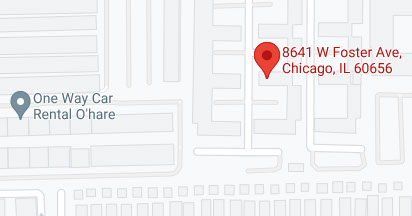
GENERAL REQUIREMENTS
Vehicle Inspection Procedure
1. Approach vehicle; look for leaks of coolant, fuel or lubricants under the vehicle. Note body condition.
2. Under hood, check battery water level, oil level (and last oil change date), transmission fluid level, belt and hose condition and adjustment. Fill windshield washer reservoir.
3. Start engine for warm up. Check for abnormal noise and gauges for normal readings. Try steering wheel for excess play.
4. Depress brake pedal for excessive travel, mushy or hard feel.
5. Check horn and windshield wipers. Turn on all lights including emergency flasher. Check high and low beam.
6. Check tire inflation and tread.
7. Check emergency equipment including fire extinguisher, first aid kit, emergency triangles, spare tire, jack, spare fuses and bulbs.
8. Walk around vehicle checking lights and reflectors.
9. Recheck all gauges, fasten seat belt, turn off lights and check the parking/emergency brake. 10. Make test stop within one block. Check operation of transmission.
Vehicle Fleet Safety
"Ucrop Trucking" desires to eliminate any conditions that adversely affect the well being of employees and threaten financial stability through accidental losses. Drivers shall operate all vehicles that they use for municipal business safely and economically. To accomplish this, employees must comply with the following practices:
2. Drivers will comply with all applicable motor vehicle laws. The vehicle operator is responsible for any traffic citations.
3. "Ucrop Trucking" prohibits unauthorized passengers or drivers to operate the vehicle.
4. Drivers will always wear seat belts, whether operating or riding as a passenger in the vehicle.
6. Drivers will use municipal vehicles for official use only.
7. Drivers will operate vehicles only when they are in safe operating condition. Each employee driving a vehicle on business shall inspect the vehicle to assure that the vehicle is in sound operating condition.
8. Each driver's privilege to operate a vehicle on official business extends only as long as the driver operates the vehicle in a safe and efficient manner. A record of "preventable" accidents shall result in appropriate disciplinary action.
9. Drivers performing work that requires the operation of a municipal vehicle must notify their immediate supervisors if their license is expired, is suspended, or is revoked. Failure to report shall be cause for disciplinary action.
10. The Personnel Office shall maintain a Vehicle Operator Record on each employee.
11. Drivers shall report all vehicle accidents and the municipality shall investigate the accident in accordance with related policies and procedures.
12. Vehicles shall contain appropriate warning and safety devices.
17. Drivers shall not use personal vehicles on official business unless there is no municipal vehicle available and they obtain specific authorization to do so from their department manager.
Drivers selection
Company managers may consider drivers of municipal vehicles as qualified to drive when they meet the following criteria:
1. Possess a valid driver's license of the proper class and a driving record that meets all performance and other standards specified in this administrative policy.
2. Capable of passing a physical examination when a question of fitness to drive arises because of illness or injury.
3. Capable of passing written tests on driving regulations whenever required.
4. Capable of passing driving tests.
5. Have demonstrated proficiency with the particular type of vehicle or equipment they will routinely operate.
Managers must examine applicants’ driving records carefully and consistently as a routine part of the screening, background investigation, and hiring process. They must:
1. Reject applicants with poor driving records for positions that require vehicle operation.
2. Verify that applicants possess, or are eligible to obtain, any special license endorsements the law requires for the type or types of vehicle they will operate in performing their duties. Here we speak primarily of the Commercial Driver’s License (CDL) requirements.
3. Determine the candidate’s physical and mental fitness to operate motor vehicles after extending a job offer.
The Personnel Office shall maintain a Vehicle Operator Record in each employee’s personnel file. Supervisors are responsible for reporting vehicle operator information to the Personnel Office.
